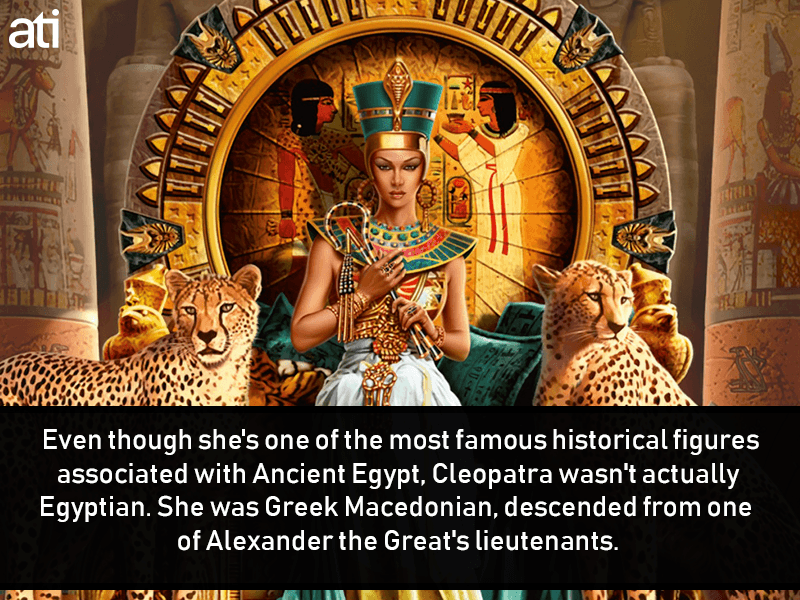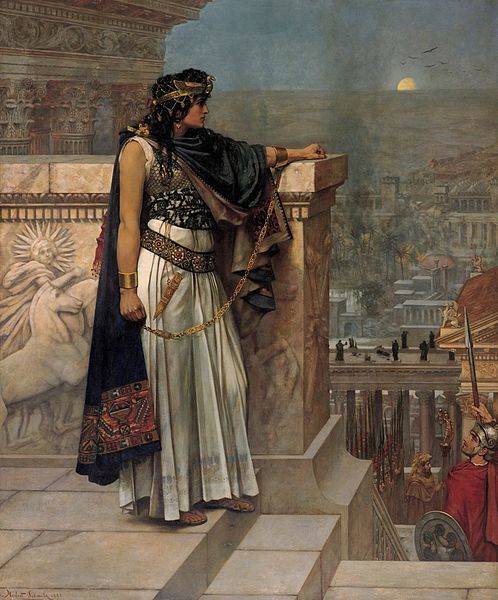
What happened to the history of Rome podcast?
After five years of podcasting The History of Rome Podcast, host Mike Duncan has completed the entire history of the rise and fall of the Rome. In his 179th and final episode he talks about the journeys through Roman history that he has taken in the podcast.
What are some of the best history podcasts you've heard?
David Crowther of The History of England podcast has mentioned Duncan as an influence, as has Peter Adamson of the podcast: The History of Philosophy without any Gaps. Isaac Meyer of the History of Japan podcast has mentioned in a few episodes that The History of Rome podcast inspired the "A day in the life of..."
What is the Book of the podcast?
The book is a collection of edited transcripts from the first 46 episodes of the podcast, covering the time period from the founding of the Roman Kingdom through the breakdown of the Republic.
What sources did Duncan use in making the podcast?
Duncan used primary sources such as Livy and Tacitus as much as possible, while using secondary or modern sources to help judge the veracity and objectivity of each source. In making the podcast, Duncan read almost exclusively about Roman history.

Where can I listen to The History of Rome podcast?
Available at revolutionspodcast.com, iTunes, or anywhere else fine podcasts can be found.
Who narrates The History of Rome podcast?
Mike Duncan is one of the foremost history podcasters in the world. His award winning series "The History of Rome" chronologically narrated the entire history of the Roman Empire over 189 weekly episodes.
How did Rome fall?
Invasions by Barbarian tribes The most straightforward theory for Western Rome's collapse pins the fall on a string of military losses sustained against outside forces. Rome had tangled with Germanic tribes for centuries, but by the 300s “barbarian” groups like the Goths had encroached beyond the Empire's borders.
How did Rome begin?
Origins of Rome Left to drown in a basket on the Tiber by a king of nearby Alba Longa and rescued by a she-wolf, the twins lived to defeat that king and found their own city on the river's banks in 753 B.C. After killing his brother, Romulus became the first king of Rome, which is named for him.
Who is David Crowther?
David T Crowther is a Professor of Science Education at the University of Nevada, Reno and the Director of the Raggio Research Center for STEM Education at UNR.
How many episodes are there in The History of Rome podcast?
179The History of Rome (podcast)The History of Rome (THoR)PresentationAudio formatMP3No. of episodes179Publication7 more rows
Did the Vikings fight the Romans?
Although a confrontation between them would have been an epic battle for the ages, the Vikings and Romans never fought each other. Through its military conquests, the Roman Empire expanded as quickly as its mighty armies could mow down enemy soldiers and march through newly conquered lands.
Was Gladiator a true story?
The film is loosely based on real events that occurred within the Roman Empire in the latter half of the 2nd century AD. As Ridley Scott wanted to portray Roman culture more accurately than in any previous film, he hired several historians as advisors.
Did Christianity Cause Rome to fall?
One of the many factors that contributed to the fall of the Roman Empire was the rise of a new religion, Christianity. The Christian religion, which was monotheistic ran counter to the traditional Roman religion, which was polytheistic (many gods).
Who were the Romans descended from?
In the first it was claimed that they were descended from the royal Trojan refugee Aeneas (himself the son of the goddess Venus). In the second it was stated that the city of Rome was founded by, and ultimately named after, Romulus, son of a union between an earthly princess and the god Mars.
Who really founded Rome?
RomulusAccording to tradition, on April 21, 753 B.C., Romulus and his twin brother, Remus, found Rome on the site where they were suckled by a she-wolf as orphaned infants.
What nationality were the Romans?
The Latins Rome started to become powerful around 600BCE and was formed into a Republic in 509BCE. It was around this time (750's – 600 BCE) that the Latins who lived in Rome became known as Romans. As you can see the identity as an Italian (from Italy) was not to happen for another 2,614 years!
What is the history of Rome?
The History of Rome. (podcast) Not to be confused with History of Rome. The History of Rome, often abbreviated THoR, was a podcast created by Mike Duncan which aired between 2007 and 2012. In the 2010 podcast awards, THoR won best educational podcast. THoR covers the time period from the origin of the Roman Kingdom to the Fall ...
Why did Duncan create the podcast?
One of Duncan's motivators for creating the podcast was to make the whole of Roman history attractive to the public through the form of a podcast.
What did Duncan read before each episode?
Duncan researched extensively before each episode, relying on primary sources such as Livy and Tacitus as much as possible, while using secondary or modern sources to help judge the verity and objectivity of each source. In making the podcast, Duncan read almost exclusively about Roman history.
Where did Duncan lead tours?
As an extension to the podcast, Duncan has led recurring guided tours around Rome, also visiting Ostia, Pompeii, Capri, and the field of Cannae; the tours walk through many sites mentioned in The History of Rome.
Is the History of Byzantium a sequel to the History of Rome?
The History of Byzantium podcast by Robin Pierson is explicitly modelled after The History of Rome in style, length and quality; Pierson said in an interview on Podcast Squared that he intended the podcast as a sequel to The History of Rome in order to complete the story.
What is the history of Rome podcast?
The History of Rome Podcast is a chronological attempt to trace the rise, decline and fall of the Roman Empire. Starting with Rome's founding by the mythical twins Romulus and Remus, this series hosted by Mike Duncan is an ongoing account of the people and events that shaped the western world. A must for any student of history ...
Who was the last native speaker of Latin?
At several universities in Rome you can still take exams in Latin. The last native speaker of Latin was the French writer Montaigne 1533-1592). His dad made him become a native speaker of Latin by speaking on Latin to him and having servants from all over Europe, therefore forcing them to use Latin with each other.
When was Rome sacked?
164- The Sack of Rome. 1/8/2012. After failing to secure a deal with Honorius, Alaric sacked Rome in August of 410. It was the first time the Eternal City had been sacked in 800 years.
What happened in the early 450s?
In the early 450s a string of deaths changed the political dynamic of Roman world. Between 450 and 455 Galla Placidia, Aelia Pulcheria, Atilla the Hun, Flavius Aetius and Valentinian III would all die- leaving the stage wide open for the next generation of leaders. Also, an announcment.
001- In the Beginning
Welcome to The History of Rome, a weekly series tracing the rise and fall of the Roman Empire. Today we will hear the mythical origin story of Rome and compare it with modern historical and archaeological evidence. How much truth is wrapped up in the legend? We end this week with the death of Remus and the founding of Rome.
002- Youthful Indiscretions
Last time we discussed the events that lead to the birth of Rome, covering the arrival of Aeneas in Italy and the story of the twins Romulus and Remus. Today we will cover the remainder of Romulus's life, his questionable morality and ultimate disappearance from the world of men.
003a- The Seven Kings of Rome
This week we cover the first three of Romulus's successors to the throne: Numa Pompulius, Tullus Hostilius and Ancus Marcius, who they were and what affect they had on the evolution Roman law and culture.

Overview
The History of Rome, often abbreviated THoR, was a podcast created by Mike Duncan which aired between 2007 and 2012. In the 2010 podcast awards, THoR won best educational podcast. THoR covers the time period from the origin of the Roman Kingdom to the Fall of the Western Roman Empire, focusing on the most accepted chain of events according to historical consensus.
Origins
Duncan came up with the idea of THoR during a plane flight and subsequent vacation. He was impressed by 12 Byzantine Rulers a podcast by Lars Brownworth, however, he struggled to find anything similar on the history of Rome. Duncan had a longstanding interest in Roman history and was reading The War With Hannibal by Livy at the time. He enjoyed many of the historical episodes he encountered in the book, but realized that much of the public knew little about Rome outside of
Making of the podcast
Duncan used primary sources such as Livy and Tacitus as much as possible, while using secondary or modern sources to help judge the veracity and objectivity of each source. In making the podcast, Duncan read almost exclusively about Roman history. Each show required Duncan 10 to 12 hours prep time, in addition to countless hours reading source material throughout the week. Duncan would aim to keep his episodes at around 4000 words. When recording, he would run tw…
Tours
As an extension to the podcast, Duncan has led recurring guided tours around Rome, also visiting Ostia, Pompeii, Capri, and the field of Cannae; the tours walk through many sites mentioned in The History of Rome.
Books
On June 4, 2016, Duncan's book, The History of Rome: The Republic (Volume 1) was published. The book is a collection of edited transcripts from the first 46 episodes of the podcast, covering the time period from the founding of the Roman Kingdom through the breakdown of the Republic.
In October 2017, Duncan's book The Storm Before the Storm: The Beginning of the End of the Roman Republic, was published by PublicAffairs, an imprint of Hachette Book Group. It focused …
Legacy and influence
The History of Byzantium podcast by Robin Pierson is explicitly modelled after THoR in style, length and quality; Pierson said in an interview on Podcast Squared that he intended the podcast as a sequel to The History of Rome in order to complete the story. David Crowther of The History of England podcast has mentioned Duncan as an influence, as has Peter Adamson of the podcast: The History of Philosophy without any Gaps. Isaac Meyer of the History of Japan podcast has m…
See also
• List of history podcasts